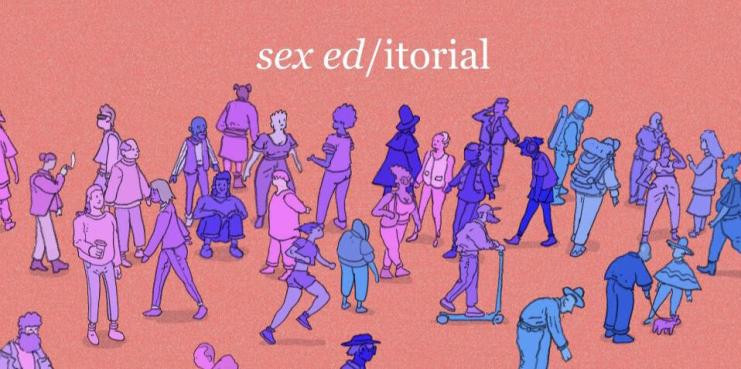Sex Ed(itorial): Pleasure Belongs to You
The Effect of Male Controlled Media on Women’s Sex Life
Sex is often hard to talk about, after all, it has been taboo for centuries and is only recently being discussed in mainstream media.
Still, women’s sexuality remains shrouded in mystery. With media largely focusing on men’s sexual pleasure, it becomes harder for women to understand their sexuality. Media made by men and for men dictates who can freely express desire and too often the only ones who fall into that category are straight and white.
Sex has always been largely informed by heteronormative white male standards and now this skewed perception is reaching a larger audience. The male gaze is all about the male fantasy, this has framed women in media for years, depicting them as mere vehicles for men’s sexual desire.
However, recently we have seen the rise of sex under the "female gaze." Take for example HBO’s new House of the Dragon, Netflix’s Bridgerton or the film, Portrait of a Lady on Fire. The female gaze is not necessarily explicit but is rather emotionally charged and loaded with subtext, it does not objectify women but rather personifies men. The female gaze focuses more on the build-up than the culmination of tension, it centers on the women’s pleasure rather than her body being displayed.
As a teenager too shy to ask questions to the adults around me, I like many others turned to the internet for answers. Male-controlled mediums like porn can be a helpful tool in discovering your sexuality, but too often it provides a cultural script that is harmful to women and marginalized groups. Porn is all about male fantasy. There is an emphasis on younger-looking actresses and men dominating women in often violent ways.
In a study analyzing popular porn videos, researchers Bridges, Liberman and Wosnitzer found that of the 304 scenes analyzed, 88.2 per cent contained physical aggression, while 48.7 per cent of scenes contained verbal aggression. They found that the perpetrators of aggression were usually male, whereas targets of aggression were overwhelmingly female. Porn glamourizes and eroticizes violence against women. Through this, many women understand and internalize the fact that being comfortable with violence is what is expected and desirable.
These hypersexual depictions of sex don’t help anybody. Discussing boundaries with your partner is necessary. TV and film often gloss over any mention or discussion about boundaries and consent before characters engage in sex. This isn’t very helpful. These conversations are often awkward and hard to have.
I had no idea how to broach the subject or if the subject even needed to be brought up because I had never seen anyone do it on screen before. It is important to recognize the impact that these male fantasies seen on screen, have on our sexuality.
Seeing more realistic depictions of on-screen sex that focus on the characters' connection and chemistry under the female gaze has helped me distance myself from what I had seen growing up and communicate with my partner about what I enjoy and am comfortable with.


_600_832_s.png)




_600_375_90_s_c1.jpg)